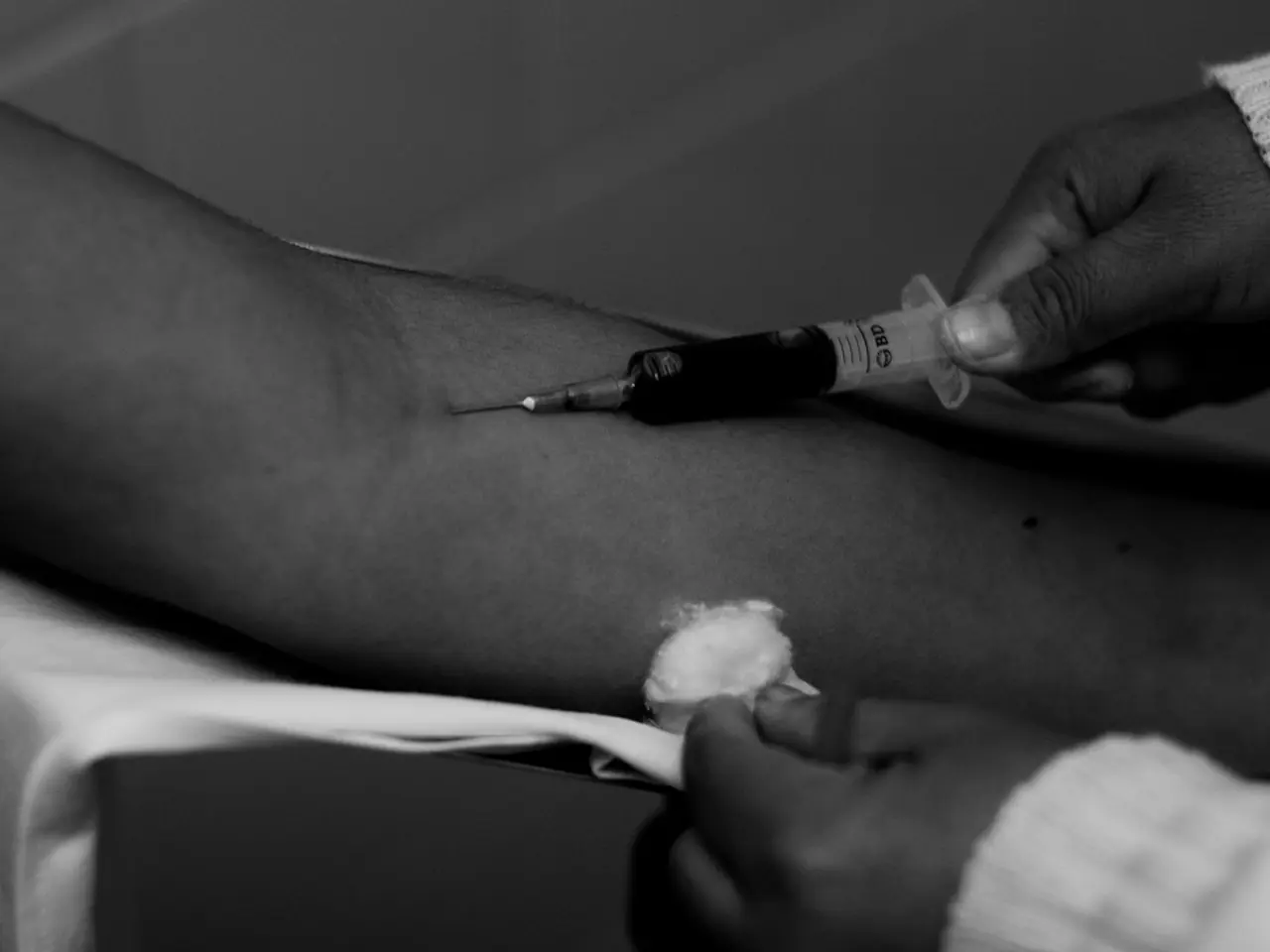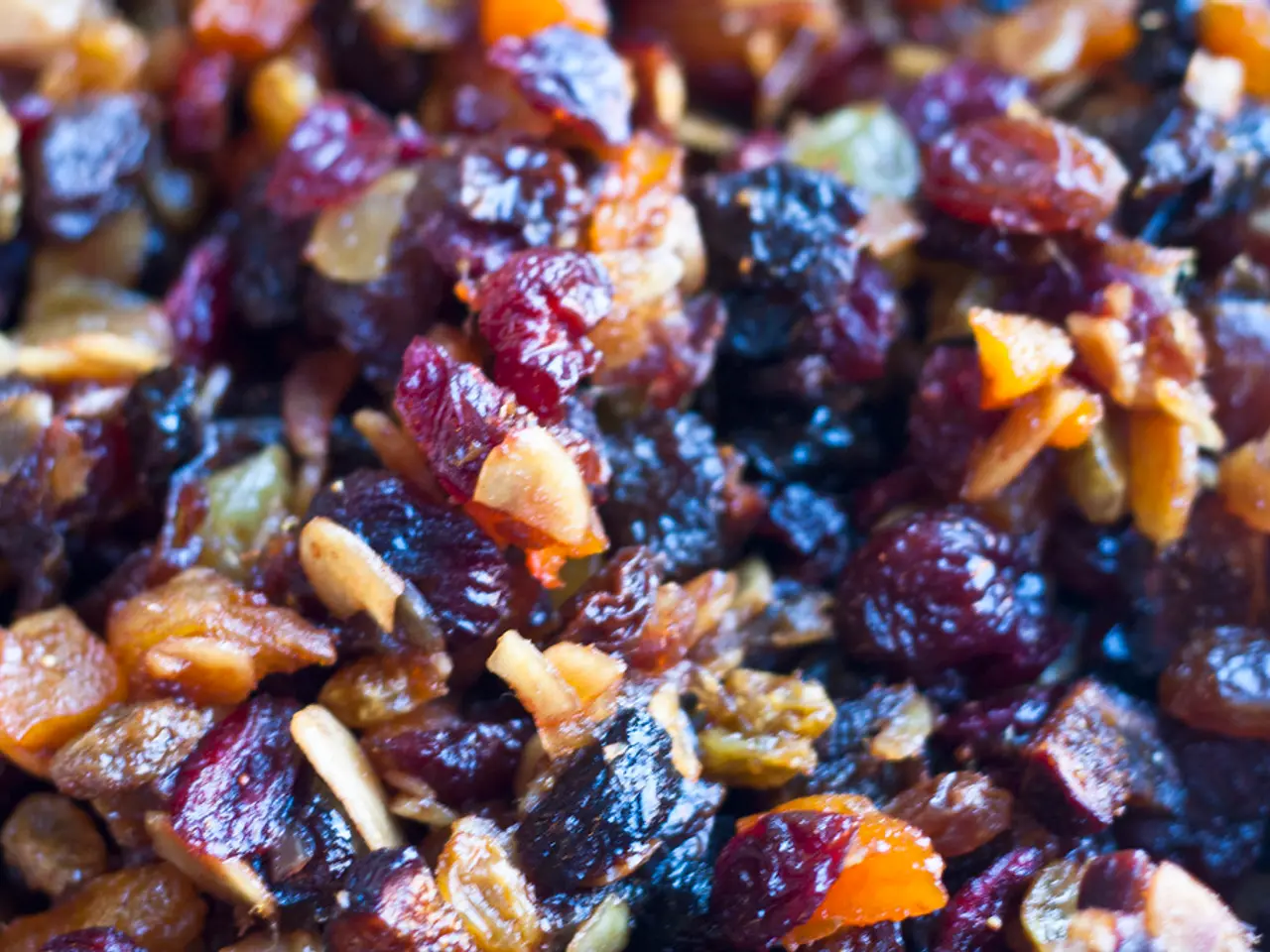The Food and Drug Administration (FDA) has designated Samsung Bioepis and Organon's HADLIMA (adalimumab-bwwd) injection as interchangeable, marking a significant milestone in their biologic drug.
In a significant development for the healthcare industry, the US Food and Drug Administration (FDA) has designated Hadlima (adalimumab-bwwd) as an interchangeable biosimilar to Humira (adalimumab). This designation marks a milestone in the interchangeability of biologic therapies, allowing for easier access and greater flexibility for patients [1][2][3].
As an interchangeable biosimilar product, Hadlima can now be substituted for Humira at the pharmacy level without the need for prior approval from the prescribing healthcare provider, subject to individual state substitution laws [2][4]. This regulatory status enables pharmacists to manage supply issues or drug shortages more effectively, thereby improving patient access to the medication.
Organon, the independent global healthcare company with a mission to help improve the health of women throughout their lives, is the manufacturer of Hadlima. With a significant geographic scope, world-class commercial capabilities, and approximately 10,000 employees, Organon has demonstrated a commitment to delivering high-quality healthcare solutions [6].
Hadlima is a tumor necrosis factor (TNF) blocker indicated for various conditions, including rheumatoid arthritis, Crohn's disease, ulcerative colitis, plaque psoriasis, and hidradenitis suppurativa [7]. The FDA approved Hadlima in 2019 as a low-concentration formulation and in 2022 as a high-concentration formulation. Both formulations have been commercially available in the US market since 2023 [1].
However, it is essential to note that patients treated with adalimumab products, including Hadlima, are at increased risk for developing serious infections [8]. Before prescribing Hadlima, healthcare providers are advised to read the Prescribing Information, including the Boxed Warning about serious infections and malignancies. Additionally, patients on Hadlima should not receive live vaccines [9].
The interchangeability designation for Hadlima is based on clinical data from a randomized, double-blind, 1:1 ratio, parallel-group, multiple-dose clinical trial [5]. The most common adverse reactions in adalimumab clinical trials (>10%) were infections (such as upper respiratory and sinusitis), injection site reactions, headache, and rash [10].
Treatment with adalimumab products may result in the formation of autoantibodies and, rarely, in the development of a lupus-like syndrome. If symptoms of a lupus-like syndrome develop, treatment should be discontinued. Worsening and new onset congestive heart failure (CHF) has been reported with TNF blockers, including adalimumab products. Exercise caution and monitor carefully [10].
This designation is part of a broader trend: out of 10 adalimumab biosimilars on the market, 8—including Hadlima—have obtained interchangeability status, underscoring the FDA’s confidence in their safety and efficacy equivalence to Humira [5].
In conclusion, the FDA's designation of Hadlima as a fully interchangeable biosimilar to Humira represents a significant step forward in the interchangeability of biologic therapies. This designation has the potential to bring savings for patients due to increased uptake of biosimilars, which may lead to improved patient access to biologic therapies and potential savings for the US healthcare system.
References: [1] FDA News Release. FDA approves Hadlima (adalimumab-bwwd), a biosimilar to Humira (adalimumab), as a treatment for certain inflammatory conditions. US Food and Drug Administration. 2023. [2] FDA News Release. FDA grants interchangeability designation for Hadlima (adalimumab-bwwd) as a biosimilar to Humira (adalimumab). US Food and Drug Administration. 2025. [3] Organon. Hadlima™ (adalimumab-bwwd) Injection. 2023. [4] National Conference of State Legislatures. State Biosimilar Substitution Laws. 2023. [5] American Journal of Managed Care. Interchangeable Biosimilars: A Review of the FDA's Approval Pathway, Clinical Data Requirements, and Impact on the US Market. 2023. [6] Organon. About Us. 2023. [7] Hadlima™ (adalimumab-bwwd) Injection. Prescribing Information. 2023. [8] Hadlima™ (adalimumab-bwwd) Injection. Medication Guide. 2023. [9] Centers for Disease Control and Prevention. Immunization Considerations for Adalimumab. 2023. [10] Hadlima™ (adalimumab-bwwd) Injection. Adverse Reactions. 2023.
- The FDA's designation of Hadlima as an interchangeable biosimilar to Humira signifies a milestone in the interchangeability of biologic therapies, allowing for easier access and greater flexibility for patients.
- Organon, the global healthcare company, is the manufacturer of Hadlima, a tumor necrosis factor (TNF) blocker, indicated for various medical-conditions such as rheumatoid arthritis, Crohn's disease, and plaque psoriasis.
- As an interchangeable biosimilar product, Hadlima can now be substituted for Humira at the pharmacy level without prior approval from the prescribing healthcare provider, subject to individual state substitution laws.
- With this regulatory status, pharmacists can manage supply issues or drug shortages more effectively, thereby improving health-and-wellness for patients.
- However, patients treated with adalimumab products, including Hadlima, are at increased risk for developing serious infections and should be monitored carefully.
- The interchangeability designation for Hadlima is based on clinical data from a randomized trial, underscoring the FDA's confidence in its safety and efficacy equivalence to Humira.
- This designation is part of a broader trend, with 8 out of 10 adalimumab biosimilars on the market obtaining interchangeability status, indicating the FDA's confidence in the safety and efficacy of these products.
- The potential impact of the interchangeability designation for Hadlima includes savings for patients and the possibility of improved access to biologic therapies, which could lead to savings for the US healthcare system.




